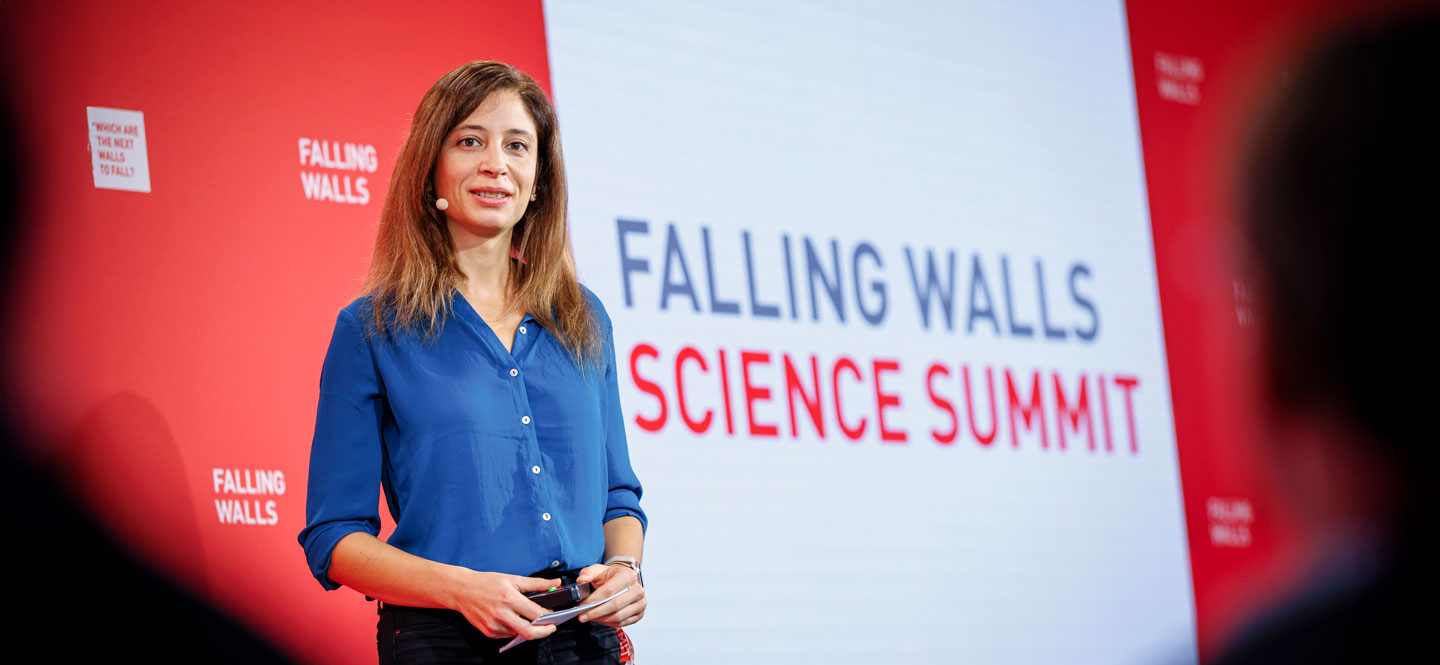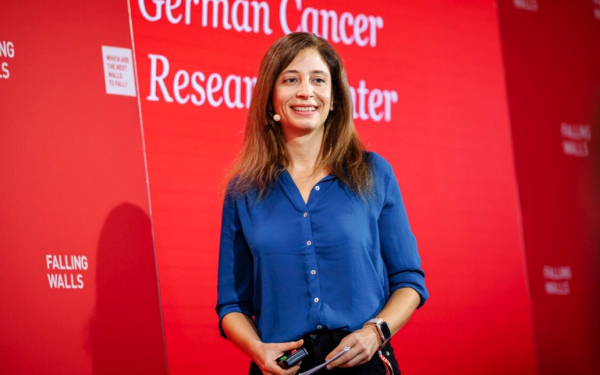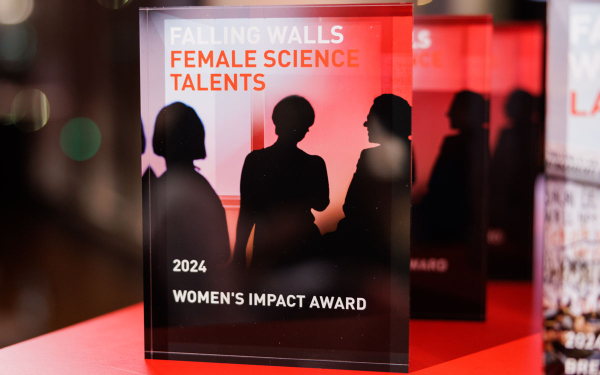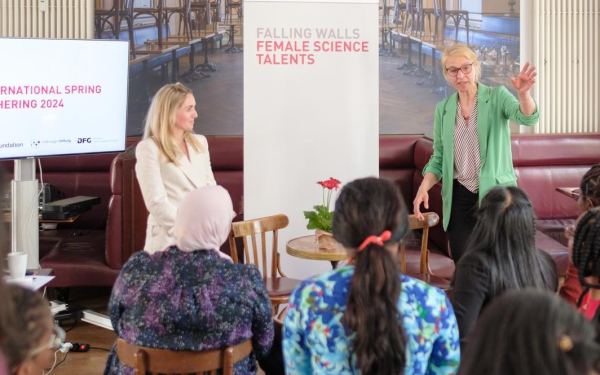Breaking the Wall: Healthy Aging in Women

Falling Walls Foundation
Ângela Gonçalves is this year's winner of the Women's Impact Award and Science Breakthrough of the Year. Her research is revolutionising our understanding of women's health and ageing. The Volkswagen Foundation supports the Women's Impact Award together with ‘Falling Walls Female Science Talents’ and the Elsevier Foundation.
Ângela Gonçalves, which wall does your project break?
Ângela Gonçalves: Our research breaks the knowledge gaps in female reproductive health and ageing. Historically, biomedical science has centred on male biology, leaving conditions that affect millions of women, including endometriosis, ovarian cancer and menopause, comparatively understudied and poorly treated. This has resulted in delayed diagnoses, invasive procedures like hysterectomy remaining the standard of care for over a century, and critical gaps in understanding fundamental processes like menstrual biology and reproductive ageing.
By applying single-cell genomics, machine learning and spatial transcriptomics, our project dismantles the barrier of insufficient biological references for female organs across the lifespan. We are creating comprehensive, high-resolution atlases of the reproductive tract and developing non-invasive methods like menstrual fluid sampling to democratise access to diagnostic tools.
These advances aim to improve health outcomes by making early detection and disease monitoring more accessible. Our work also challenges entrenched scientific assumptions, such as revealing the hidden costs of the menstrual cycle and reframing menopause as a broader mammalian phenomenon.
What is the main goal of your research?
Ângela Gonçalves: The main goal of our research is to transform women’s health and reproductive ageing research through a data-driven approach that integrates cutting-edge science with clinical impact. Specifically, we aim to create comprehensive genomic references of the female reproductive tract that distinguish healthy ageing from early disease. These references serve as the foundation for developing non-invasive diagnostics, predictive biomarkers and computational tools that can improve the detection, prevention and treatment of conditions such as endometriosis, ovarian cancer and infertility.
For example, we are developing ways to study menstrual fluid so that important insights can be gained without the need for invasive procedures such as endometrial biopsies. We are also training advanced machine learning models to identify biomarkers of disease and to predict embryo developmental potential in IVF. In parallel, we are rethinking menopause and reproductive ageing, providing new frameworks that expand scientific understanding beyond humans.
Our ultimate vision is to empower women with accessible, personalised health tools and to drive progress in cancer prevention, reproductive medicine and ageing research. By combining genomics, AI and clinical insight, we aim to drive scientific discovery and improve access to diagnostic and treatment options that are less invasive and more widely acceptable.
What advice would you give to young scientists or students interested in pursuing a career in research, or to your younger self starting in science?
Ângela Gonçalves: To young scientists, I would say: pursue questions that matter deeply to you, especially those that challenge conventional wisdom or highlight neglected areas of science. Some of the most transformative discoveries come from looking where others have not. In women’s health, for example, there are many opportunities to make discoveries that directly improve lives.
To my younger self, I would say: be patient.
Embrace interdisciplinary approaches: today’s most exciting breakthroughs often happen at the intersection of biology, computer science and clinical medicine. Don’t be afraid to learn new tools, whether in AI, genomics or imaging, and use them to reframe old problems in innovative ways. Expect setbacks and uncertainty: science is a long-term pursuit where persistence and resilience matter as much as talent.
To my younger self, I would say: be patient. Each step, even the frustrating ones, adds to the bigger picture. Remember why you started. Research is about advancing knowledge and, by keeping that purpose at the centre, you will have the motivation to keep going and the courage to push boundaries.
What inspired you to be in the profession you are today?
Ângela Gonçalves: At every stage of my career, I have been motivated by curiosity, the drive to chase what excites me and uncover what is hidden. At the same time, I am always on the lookout for how to turn knowledge into something practical.
What impact does your research or project have on society?
Ângela Gonçalves: Our research impacts society by creating essential biological references for the female reproductive system which are critical for distinguishing healthy aging from early signs of disease. After all, how can we recognise disease without first knowing what "normal" organs look like across the lifespan?
What’s the most exciting moment you've experienced over the course of your research or project?
Ângela Gonçalves: One of the most exciting moments of my research was seeing the positive response to our menstrual fluid project. Volunteers were eager to participate, empowered by the knowledge that their contributions could help women’s health research.
This text was first published on the Falling Walls 2025 website.



